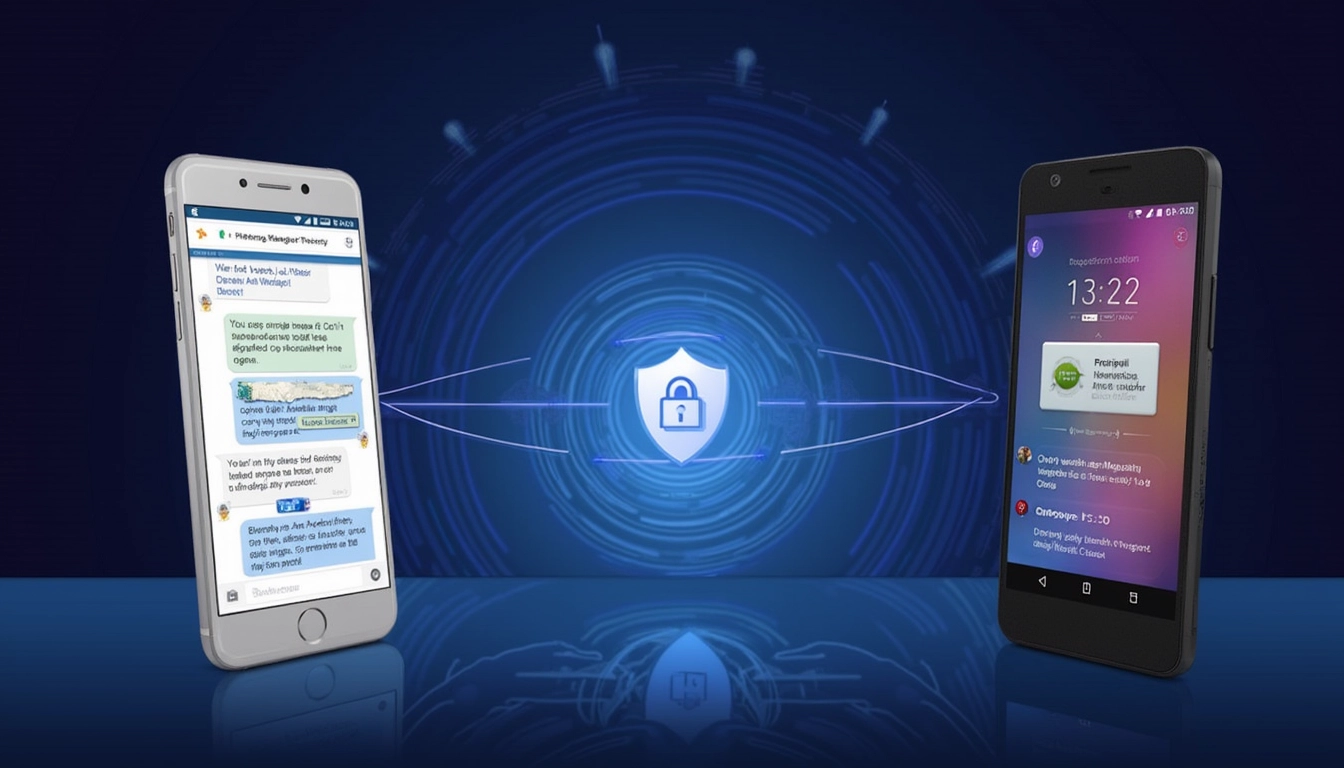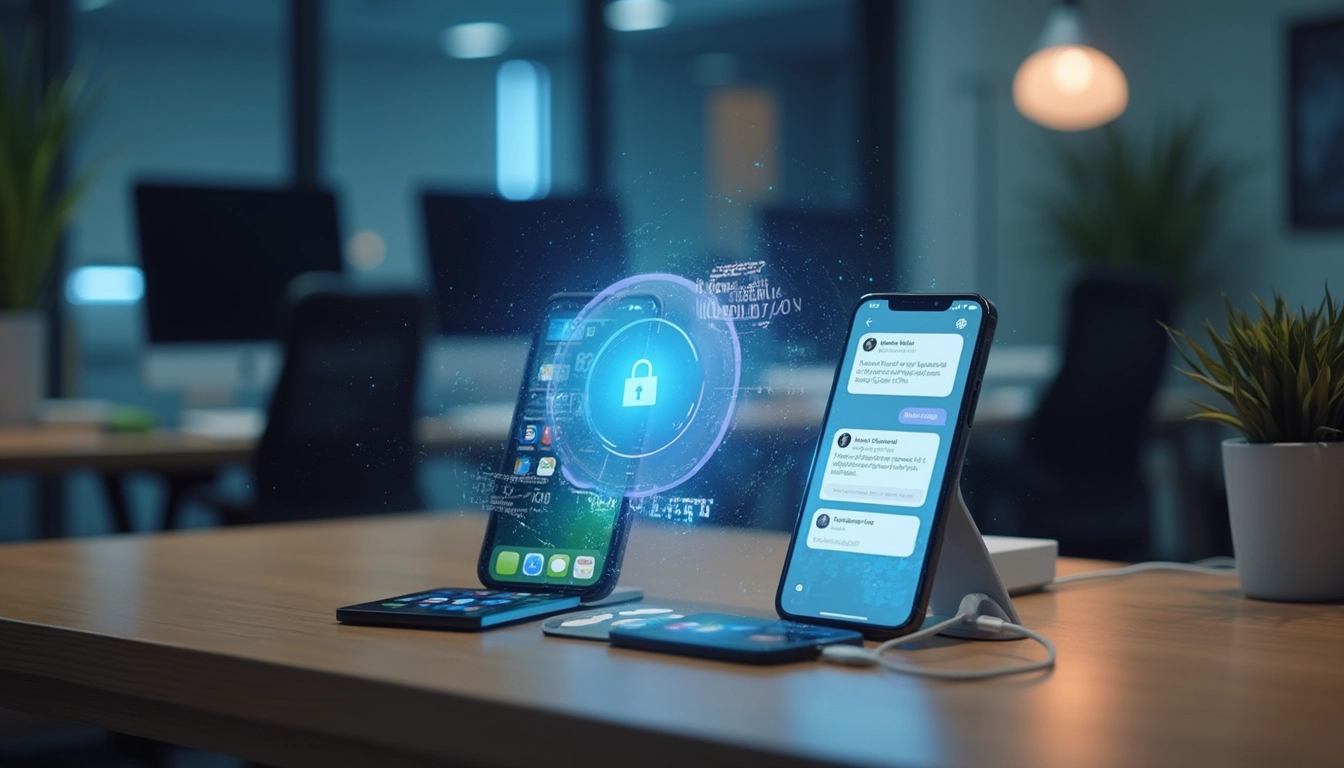
RCS Universal Profile 3.0 Introduces Cross Platform Encrypted Messaging Security
The introduction of the RCS Universal Profile 3.0 marks a significant milestone in the evolution of cross-platform messaging, particularly with the inclusion of end-to-end encryption (E2EE) between iOS and Android devices. This update addresses a long-standing gap in security for RCS messaging, ensuring that messages and files remain confidential and secure during transmission across different platforms.
Table of Contents
Key Takeaways
- The GSMA has announced the RCS Universal Profile 3.0, which includes end-to-end encryption as a standard feature, enhancing security and privacy for cross-platform messaging[1][2][4>.
- Apple will implement the new RCS profile with E2EE in future software updates, including iOS, iPadOS, macOS, and watchOS, expected to be part of iOS 19[1][2>.
- Google is committed to transitioning to the Messaging Layer Security (MLS) protocol for broader compatibility and will implement the updated RCS specifications quickly[1][2].[5]
- The new RCS profile uses the Messaging Layer Security (MLS) protocol, providing efficient and practical security for large-scale messaging services[2][5>.
- This update is seen as a significant win for user privacy, offering enhanced communication security without the need for third-party apps, benefiting both tech-savvy and less tech-savvy users[1][2].[2]
RCS Universal Profile 3.0: A New Era in Cross-Platform Messaging
The GSMA’s announcement of the RCS Universal Profile 3.0 is a landmark event in the history of messaging services. This new profile introduces end-to-end encryption as a standard feature, ensuring that messages and files sent between iOS and Android devices remain secure and confidential. This is the first large-scale messaging service to support interoperable E2EE between different client implementations, a significant advancement in messaging security[1][2][4>.

Apple’s Adoption of RCS with E2EE
Apple has confirmed its commitment to implementing the new RCS profile with E2EE in future software updates. This includes updates to iOS, iPadOS, macOS, and watchOS, with the feature expected to be part of iOS 19. This marks a significant shift from Apple’s previous E2EE offering, which was limited to iMessage. By adopting the new RCS standard, Apple is aligning with industry standards for secure messaging and addressing the previous security gap in its RCS implementation[1][2>.
Google’s Commitment to Secure Messaging
Google has been a long-time supporter of E2EE in its messaging services. Google Messages has featured default E2EE for both individual and group conversations, provided all participants are using Google Messages with RCS enabled. With the new RCS Universal Profile 3.0, Google plans to transition to the Messaging Layer Security (MLS) protocol to ensure broader compatibility and enhanced security across platforms. Google has committed to implementing the updated RCS specifications as quickly as possible to provide a secure messaging experience[1][2][5>.
Impact on User Privacy and Security
The introduction of E2EE in the RCS Universal Profile 3.0 significantly enhances user privacy and security. Here are some key benefits:
- Enhanced Communication Security: Users will no longer need third-party apps to ensure their messages are encrypted, as the default messaging apps will now offer this security feature[1][2>.
- Broader User Base: Both tech-savvy and less tech-savvy users will benefit from this update, as it provides a secure messaging experience without the need for additional setup or knowledge[1][2>.
- Cross-Platform Security: The interoperable nature of this update ensures that messages between iOS and Android devices are secure, aligning with the broader trend of prioritizing user privacy and security in messaging services[1][2].[4]
Evolution of RCS and E2EE Implementation
The evolution of RCS has been marked by several significant milestones. Apple initially enabled RCS on iPhone in 2024, but without E2EE. The new update addresses this previous security gap, aligning Apple’s RCS implementation with industry standards for secure messaging. This update is part of a broader effort to enhance the overall messaging experience and security across platforms[1][2].[4]
Future of Secure Cross-Platform Messaging
Both Apple and Google are committed to the swift implementation of the new RCS specifications. This commitment is expected to enhance the overall messaging experience and security across platforms. The adoption of the MLS protocol for E2EE is part of a larger trend in the tech industry, where user privacy and security are being prioritized in messaging services. As research continues on adding post-quantum cryptography to MLS, the future of secure cross-platform messaging looks promising[1][2][5>.
If you’re looking to automate various tasks, including managing your messaging and other business automations, consider using Latenode, an automation website that can help streamline your processes.
For more insights into the future of RCS and its security implications, you can read more on RCS Messaging: The Future of Texting and Its Security Implications. Additionally, you might be interested in how other features like Google’s Circle to Search are evolving in Nothing Phones to Receive Google Circle to Search Feature with Android 15, or the EU’s demands for device interoperability in EU Demands Apple Boost Device Interoperability for Fair Competition.


